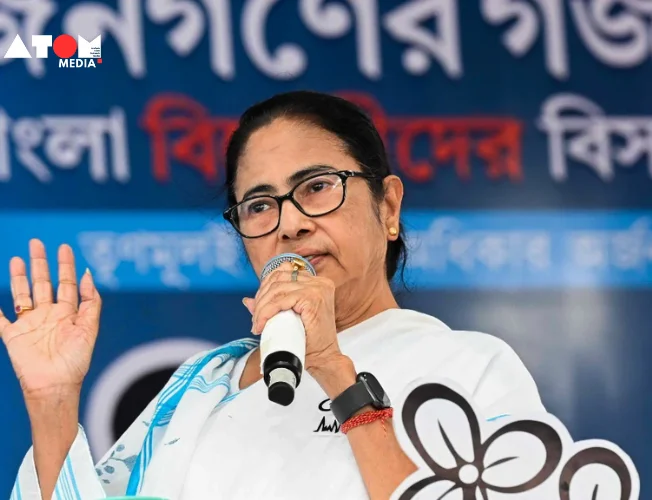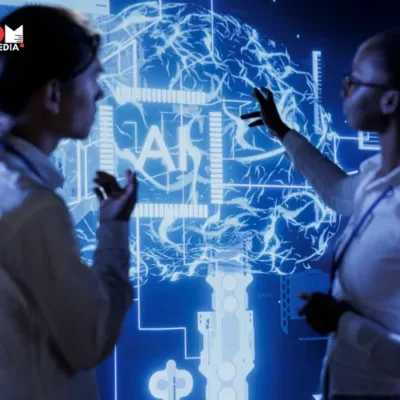Mamata Banerjee, the chief minister of West Bengal, has declared that she would not be present at the June 1 Indian National Developmental Inclusive Alliance (INDIA) bloc conference. This decision is being made in the wake of Cyclone Remal, which hit West Bengal on Sunday night, causing severe damage and taking at least four lives. The Trinamool Congress (TMC) is preparing for the state’s final round of the Lok Sabha elections.
Focus on Immediate Priorities
Banerjee addressed the subject on Monday during an electoral rally in Burrabazaar, Kolkata, and gave an explanation of why she had chosen not to attend the INDIA bloc meeting. “Earlier, the India Bloc said that a meeting will take place on June 1. We will still be holding polls here, just as in a few other states, so I informed them I couldn’t go. She said, “How could I go with elections on the one hand and cyclone relief on the other?” “My priority is ensuring relief for the people,” she continued, reiterating her dedication to her residents. Although I am conducting a meeting here, my heart is with the impacted individuals.
Political discussions have been subordinated to Banerjee’s priority of relief operations and rapid action due to the effect of the cyclone. Her choice demonstrates her commitment to meeting the immediate needs of people impacted by the cyclone while also getting ready for the crucial West Bengal elections final round.
Final Phase of Lok Sabha Elections in West Bengal
June 1st is the scheduled date of the last voting round in West Bengal, which will include nine seats, including two crucial constituencies in Kolkata: Kolkata Dakshin and Kolkata Uttar. Jadavpur, Dum Dum, Barasat, Basirhat, Jayanagar, Mathurapur, and Diamond Harbour are the other constituencies that will be voting. Gaining these seats is the TMC’s main goal in order to bolster its standing in the Lok Sabha.
Election results in West Bengal have historically been important, and how the TMC performs overall will be greatly influenced by the results in these seats. Banerjee’s commitment to her political and administrative duties is demonstrated by her choice to remain behind and supervise the election process and rescue activities following the storm.
INDIA Bloc Meeting in Delhi
To assess their success in the Lok Sabha elections and plan for the future outcomes, the opposition INDIA bloc’s senior leaders will meet in Delhi on June 1. This afternoon conference, which coincides with the final round of polling, is critical for the bloc because it will allow it to assess the electoral environment and strategize for the future.
This conference has been called by Congress chairman Mallikarjun Kharge, one of the opposition alliance’s most senior figures. On the schedule are evaluations of the campaign’s efficacy, analysis of voter participation, and planning for the aftermath of the election. The INDIA group wants to create its own government and is committed to keeping the BJP-led National Democratic Alliance (NDA) from taking back control of the federal government.
Political Dynamics and Alliances
The major goal of the 28 member parties that make up the INDIA bloc, which was established in July of the previous year, is to challenge the BJP’s hegemony in the 2024 Lok Sabha elections. The coalition aims to provide a strong challenge to the National Democratic coalition (NDA), which is running for a third term in a row under Prime Minister Narendra Modi.
Despite being a major force in the INDIA bloc, the TMC does not share seats in West Bengal with the Congress or other bloc members. However, the Samajwadi Party, an ally within the bloc, has endorsed TMC candidate Laliteshpati Tripathi in Bhadohi, Uttar Pradesh. This demonstrates how political cooperation and alliances within the INDIA bloc are diverse and nuanced, according on local circumstances and election tactics.
Cyclone Remal’s Aftermath
West Bengal has faced a major challenge as a result of Cyclone Remal, which brought with it high winds and heavy rains that severely damaged the area and interrupted daily life. At least four people have died as a result of the cyclone’s devastation, and many more are in critical need of help. Under Banerjee’s direction, the state administration has gathered resources to offer people impacted with emergency aid and assistance.
In order to supervise the relief efforts and guarantee that the impacted areas receive the required assistance and support, Banerjee’s presence in the state at this crucial period is imperative. Her choice to put storm aid ahead of the INDIA bloc meeting demonstrates her dedication to both her administrative responsibilities and the welfare of her people.
Election Context and Implications
The Lok Sabha elections, which commenced on April 19, have been held in several stages in order to cater to the wide range of interests and preferences of Indian voters. Every region is given the chance to fully engage in the democratic process thanks to the staged approach. Particularly important will be the last round on June 1 for West Bengal, a state renowned for its dynamic political climate and close election contests.
The country’s political environment and the makeup of the incoming administration will be shaped by the election results, which are expected to be declared on June 4. Since the INDIA group has positioned itself as a potent rival to the NDA, observers will be keenly monitoring its performance. In the post-election phase, the coalition’s capacity to bring its constituent parties together and present a unified front will be essential.
Broader Political Implications
Banerjee’s choice to forego the INDIA bloc meeting is indicative of larger political dynamics and the difficulties in striking a balance between coalition politics and urgent administration duties. Her emphasis on seeing to the immediate needs of Cyclone Remal’s victims in West Bengal and making sure that elections go off without a hitch highlights how difficult crisis management can be.
The choices and actions of influential political figures like Banerjee will be vital in determining the post-election environment as the election results draw near. The INDIA bloc’s chances of defeating the BJP-led NDA and shaping the course of Indian politics in the future will depend on its capacity to handle these dynamics and put up a unified front.
Read more: Marketing News, Advertising News, PR and Finance News, Digital News





